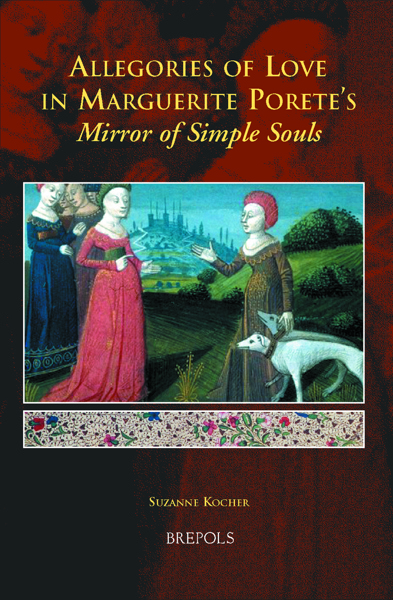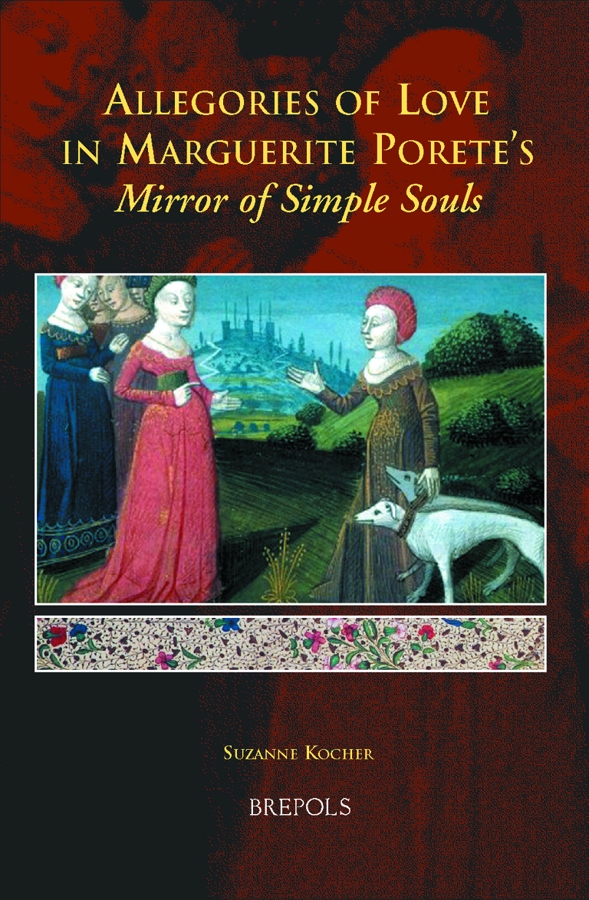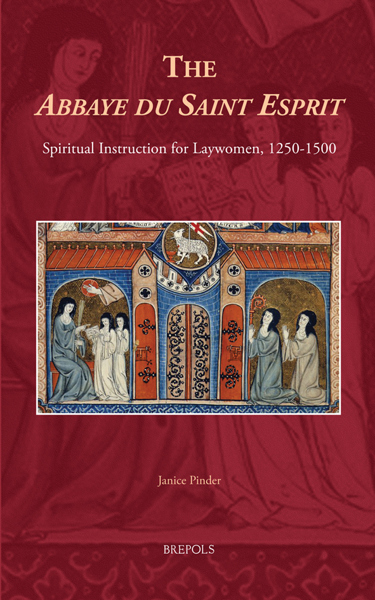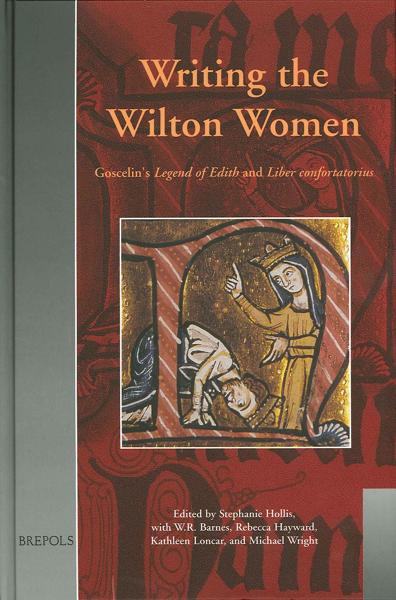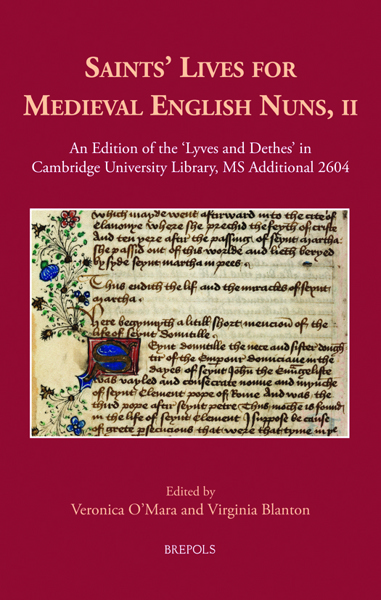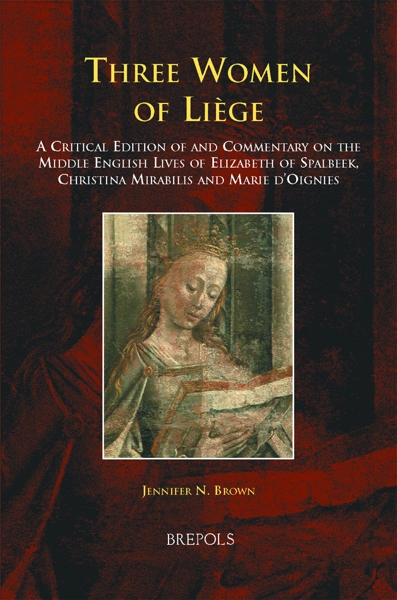
Allegories of Love in Marguerite Porete's 'Mirror of Simple Souls'
Suzanne Kocher
- Pages: 218 p.
- Size:160 x 240 mm
- Language(s):English, Middle French
- Publication Year:2009
- € 55,00 EXCL. VAT RETAIL PRICE
- ISBN: 978-2-503-51902-9
- Hardback
- Available
- € 55,00 EXCL. VAT RETAIL PRICE
- ISBN: 978-2-503-56244-5
- E-book
- Available
This volume analyses the role of allegory in Marguerite Porete’s Mirror of Simple Souls, the oldest known mystical work written in French, and the only surviving medieval text by a woman writer executed as a heretic.
"The text is challenging for modern scholars in its internal complexity and the initial hunt for meaning, for its material and linguistic alterity, and for its separate traditions following several early translations. This study valorizes the work of a scholar ready to meet the challenge." (Adrian P. Tudor, in French Studies 65/3, July 2011, p. 376)
"This is, in sum, an important study for anyone interested in any aspect of Marguerite Porete's life and work, and a thought-provoking contribution to larger issues around medieval spiritual literature." (S. Field, in: The Medieval Review, 09.12.13)
Marguerite Porete’s Mirror of Simple Souls, dating probably to the 1290s, is the oldest known mystical work written in French, and the only surviving medieval text by a woman writer executed as a heretic. This volume analyses its use of interconnected allegories that describe the soul’s approach toward God in terms of human social relationships. These include romantic love between lovers in same-sex and mixed-sex pairs, relations among people of differing social rank such as servants and nobles, and rich and poor engaged in economic transactions such as taxation and gift-giving. Gender, rank, and exchange serve as remarkably versatile allegories for spiritual states. Porete uses comparison as an organizing principle that underlies her supple and creative use of allegory, personification, parables, metaphors, similes, proverbs, and glosses. The theologian invites her audience to cross boundaries among literal and figurative registers of meaning, in ways that are emblematic of the soul’s ultimate leap toward the divine. Porete’s social allegories, the author contends, can provide us with valuable evidence of a medieval thinker’s conceptions of God, gender, language, and human capacity for change.
